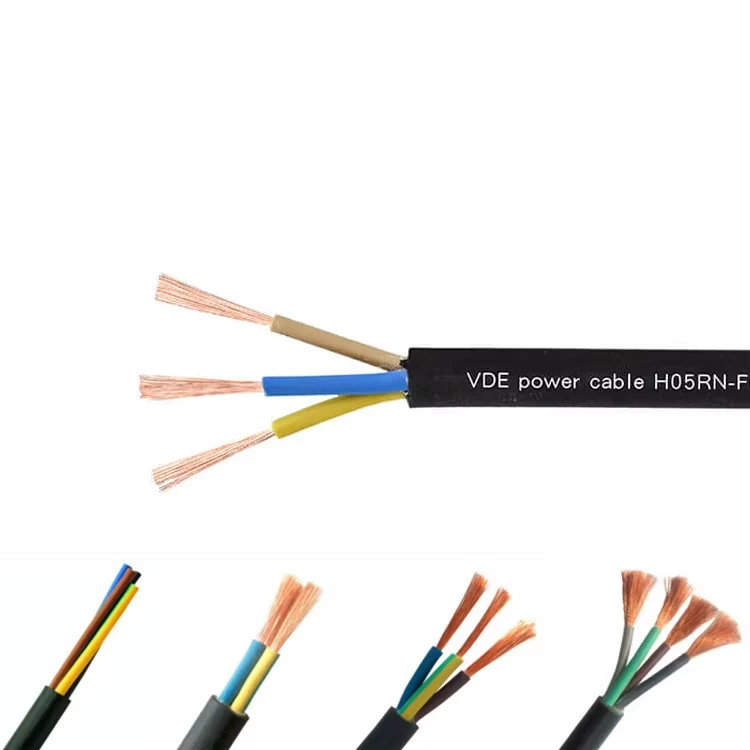
Types of Electrical Power Cables and Their CE Certification Requirements
CE Certification and Types of Electrical Power Cables
CE Certification is a crucial element in the European marketplace, particularly for electrical power cables. This mark indicates that a product complies with EU safety, health, and environmental protection standards. Understanding the types of electrical power cables and their associated CE certification requirements is essential for manufacturers and consumers alike. This article elaborates on the various types of electrical power cables and the significance of CE certification in ensuring product safety and usability.
Understanding Electrical Power Cables
Electrical power cables are integral for transmitting electrical power from one point to another. They are classified based on several criteria, including their construction, application, and voltage capacity. The most common types of electrical power cables include
1. Low Voltage Cables These cables operate at voltages below 1 kV. They are typically used in residential and commercial applications for lighting and power supply.
2. Medium Voltage Cables Operating between 1 kV and 33 kV, medium voltage cables are utilized for power distribution in industrial settings and for the supply of electricity in urban areas.
3. High Voltage Cables High voltage cables are designed to operate above 33 kV. They are essential for long-distance power transmission, typically used by utility companies.
4. Flexible Cables These cables are characterized by their flexibility and are often used in applications where movement is required, such as electric tools and machinery.
5. Armored Cables Providing additional protection, armored cables are used in environments where mechanical damage is possible. They are commonly used in underground installations and industrial applications.
6. Specialty Cables These include cables designed for specific applications, such as fire-resistant cables that maintain functionality during a fire, or submarine cables used for underwater power transmission.
The Importance of CE Certification
CE certification plays a pivotal role in ensuring that electrical power cables meet European safety standards
. Here are the key reasons why CE certification is important- Safety Assurance CE certification ensures that cables undergo rigorous testing for safety, ensuring they can handle the electrical load without risk of failure. This decreases the likelihood of electrical fires, shocks, or other accidents.
ce certification types of electrical power cables

- Regulatory Compliance For manufacturers, obtaining CE certification is mandatory for the sale of electrical power cables in the European market. It demonstrates compliance with all relevant directives, thereby avoiding legal issues and ensuring market access.
- Consumer Confidence For consumers and businesses, purchasing products with the CE mark assures them of the quality and safety of the cables. This trust is crucial for long-term relationships between manufacturers and clients.
- Marketability CE certification enhances the marketability of electrical power cables. Manufacturers with the CE mark can compete more effectively in the market, as it adds value to their products.
The Certification Process
To obtain CE certification for electrical power cables, manufacturers must follow a systematic process, which generally includes the following steps
1. Identify Relevant Directives Different types of cables must comply with specific EU directives, such as the Low Voltage Directive (LVD) or the Electromagnetic Compatibility (EMC) Directive.
2. Testing and Assessment Products must undergo rigorous testing in accredited laboratories to ensure compliance with the identified directives.
3. Documentation Manufacturers must compile Technical Documentation that demonstrates compliance, which may be required for inspections by regulatory authorities.
4. Declaration of Conformity After successful testing, a Declaration of Conformity is issued by the manufacturer, indicating the product adheres to EU standards.
5. Affix the CE Mark Finally, once all requirements are met, the product can be marked with the CE logo, allowing it to be sold in the European market.
Conclusion
In summary, CE certification for electrical power cables is not only a regulatory requirement but also an assurance of safety, reliability, and quality. Understanding the various types of cables and their specific applications helps in choosing the right product, while CE certification facilitates compliance and builds consumer trust in the European market. This combination of knowledge and certification ultimately fosters a safer and more efficient electrical infrastructure.
-
Reliable LIYCY Cable Solutions for Low and Medium Voltage ApplicationsNewsJul.14,2025
-
Premium Overhead Electrical Wire Solutions for Low and Medium Voltage ApplicationsNewsJul.14,2025
-
Innovative XLPE Electrical Cable Solutions for Modern Low and Medium Voltage NetworksNewsJul.14,2025
-
High-Quality Ethylene Propylene Rubber Cable – Durable EPDM Cable & 1.5 mm 3 Core OptionsNewsJul.14,2025
-
Exploring the Versatility of H1Z2Z2-K 1X4mm2 Cables in Modern ApplicationsNewsJul.14,2025
-
Uses of Construction WiresNewsJul.14,2025
-
Types of Neoprene CableNewsJul.14,2025














